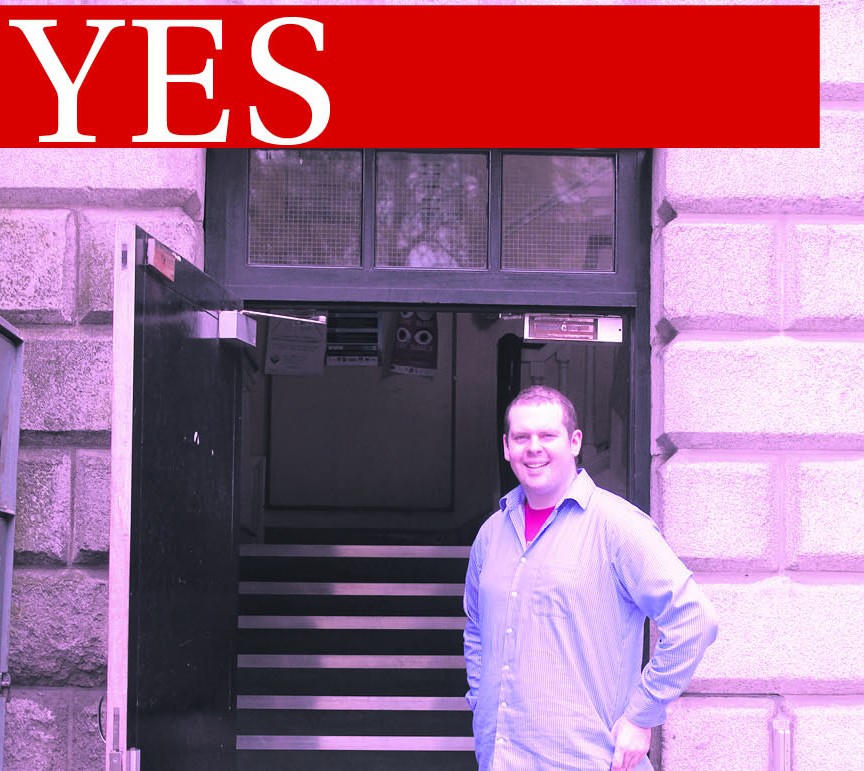David Walsh | Contributing Writer
To see the counter argument check https://universitytimes.ie/?p=20058
Subsequent to UT’s front page article on a college movement to impeach SU President Tom Lenihan, much debate over the issue has been sparked amongst campus on whether there is a need for such an action.
It is my belief that Tom Lenihan should resign. Lenihan’s actions have brought his office into disrepute and carry highly damaging implications for the SU as a whole. The question at the heart of this debate is whether someone who decides to cheat in a college exam is a suitable representative for more than 12,000 students. It is imperative whilst answering this question that all personal bias should be left aside in order to determine what the best interests of the college are as a whole. Having weighed in on the matter, it strikes me that those who do damage to the student body whether directly or indirectly are not fit to serve in office.
As SU President, the confidence and trust of the student body are essential. Both these necessities were severely undermined by Lenihan’s statement last May in which he admitted to taking a note into one of his end of year exams. Speaking to many at the time and indeed subsequently, responses may differ but most concluded that those in authority have a duty to act in accordance with it. By his actions, it would seem that due notice was not given to the faith that the college community placed in him February last. At a time when interest in student politics is at an all-time low, those who act dishonestly are hardly the types required to effect change at college or indeed national level. Our elected representatives must be able to address the growing apathy that exists on behalf of students towards the SU. Whilst the SU has its work cut out for them in securing the full backing of the student body in any year, this gap cannot be bridged at a time with such divisive figures at the helm.
All of us should be held accountable if or when we choose to break college rules. This is doubly true of those who occupy special positions of authority within Trinity, as arguably more is lost when those we look to represent us act adversely to the college as a whole. The consequences of cheating are not confined alone to those who undertake such an action but also undermine the academic results of one’s peers. The College authorities imposed disciplinary action on Lenihan, exercising a punishment entirely at their own discretion. However, the issue does not simply end there. For the President also entered into a union of trust with the students when elected and this trust has been undermined irreparably by his actions. These circumstances are hardly conducive to a healthy Presidency and Lenihan’s his refusal to resign sets a dangerous precedent for the standards with which he hold our elected student representatives.
Let’s consider if Lenihan does continue on in his role as President, how such a move will effect the university. He has been discredited in the eyes of not only the student body but in that of his colleagues in the USI. There have long been calls for an increased transparency in the workings of the USI as a whole. Trinity students in particular have pushed for this change. How will Trinity’s calls for greater reform within this institution be met if advanced by Mr Lenihan whose record on openness has to date proven patchy? Is it not the case that having barely launched into the academic year, Trinity’s seat at USI is already at a disadvantage? On a different note, is an individual who has proven incapable of dealing with the stress posed by a college exam, fit to tackle the often overwhelming difficulties that the Presidency entails. Taking on the role of President is not one which should be entered onto lightly. The student body require a President who is up to the task.
In a recent interview with RTE, Lenihan expressed a sense of disillusionment with Ireland’s main political parties and the outdated politics they represent. It is high time we see a new style of politics, a politics of proper accountability whenever wrongdoing occurs. Lenihan’s resignation would make for a good first step.
His position is untenable.







